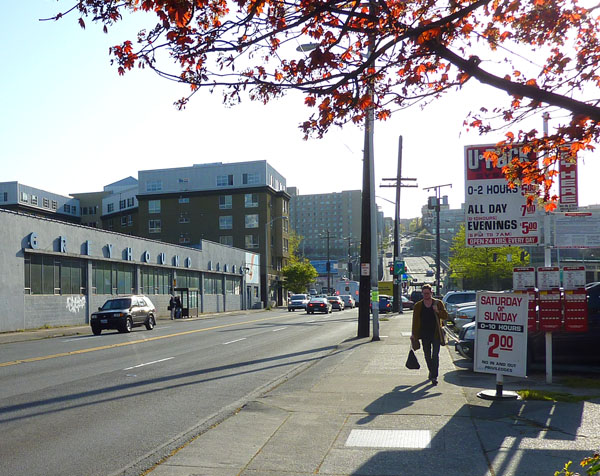Money Walks
Note: A shorter version of this post originally appeared in Seattle Magazine’s “Big Idea: Transportation Edition,” for which locals were asked: Given a blank check, what single thing would you do to improve transportation in the region?
I propose a solution to our transportation woes that is over a million years old: walking.
Evolution has endowed us with bodies that are supremely efficient walking machines. Yet over the past century we have increasingly abandoned that endowment in favor of cars, an obsession that has led to a proliferation of places in which walking is both impractical and unpleasant.
But can walking really make a difference in a modern transportation system?
In U.S. cities 25 percent of all trips are a mile or shorter. Meanwhile, the average Australian walks two miles more per day than does the average American. Prior to mass transit, 50,000 pedestrians an hour crossed London Bridge. Over the past few decades the fraction of children walking to school has plummeted, and as a result in some urban areas more than a quarter of morning traffic has been attributed to parents driving to school. Nearly every transit trip starts and ends with a walk.
So yes, walking matters. The question is, then, how do we motivate more of it?
Part of the answer is better urban design, but I believe the biggest impediment is psychological. We need to break our habit of not walking, and here’s how to do it: pay people to walk.
Something like five or ten dollars a mile sounds about right. And because the key factor in breaking a habit is often simply getting a taste of the alternative, costs could be kept down by offering the subsidy during limited times only. It wouldn’t be that hard to track walkers—most cell phones have GPS. Ideally, the program would be implemented at the national level (a federal income tax credit? National Walk Week?), because that would bring the added benefit of upping demand for walkable places nationwide.
Ludicrous liberal social engineering fantasy? Totally. But far less ludicrous than a “WALL-E” world in which no one walks.
>>>
Dan Bertolet is the creator of Citytank.


